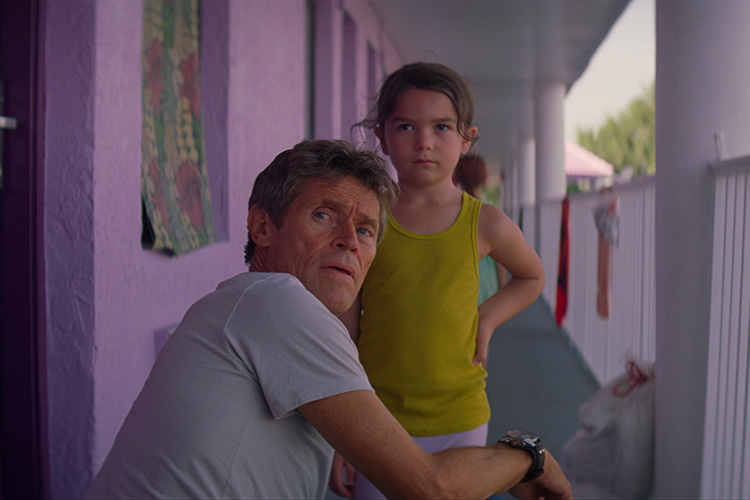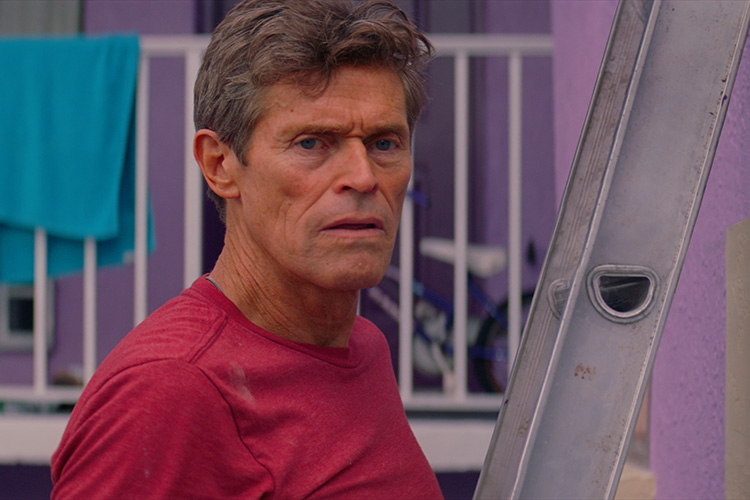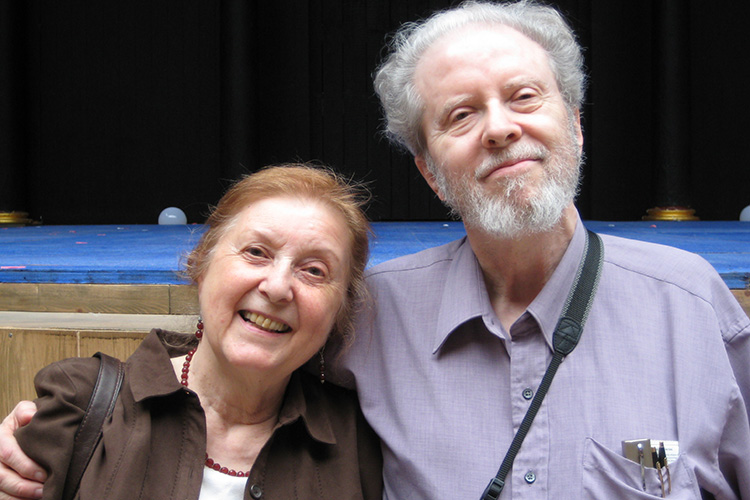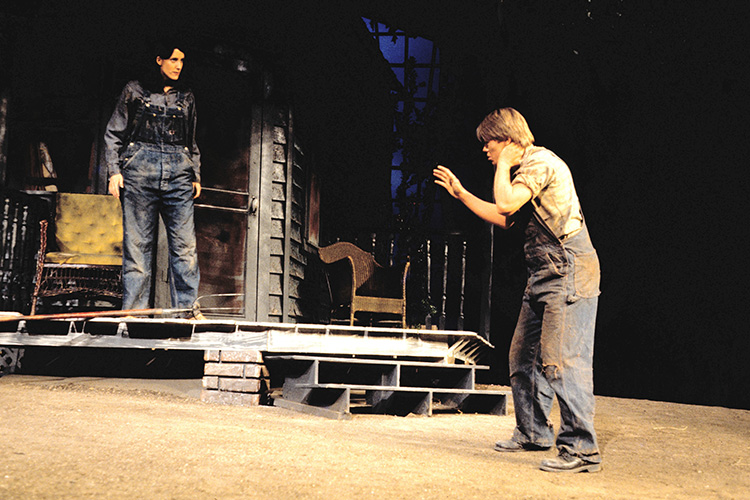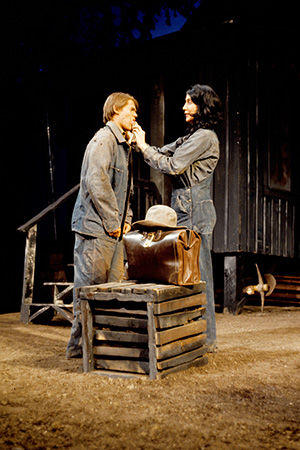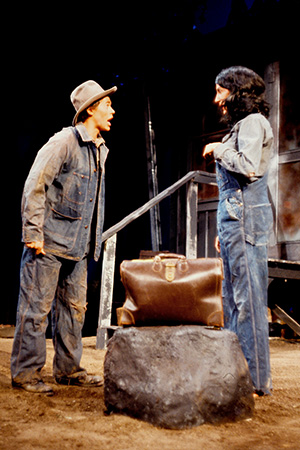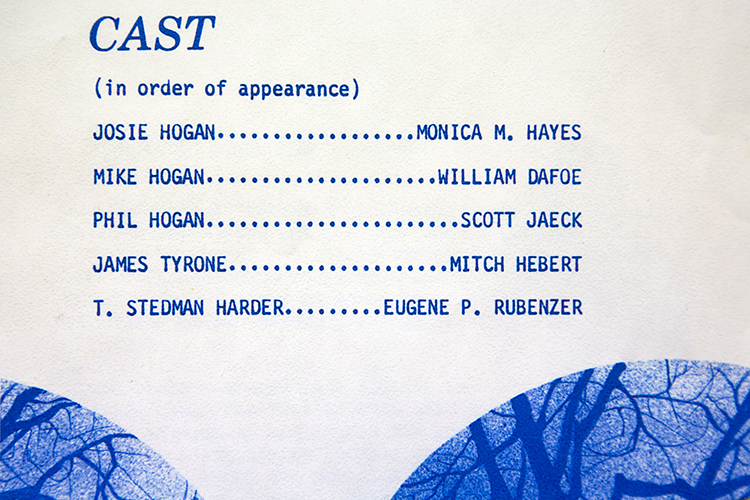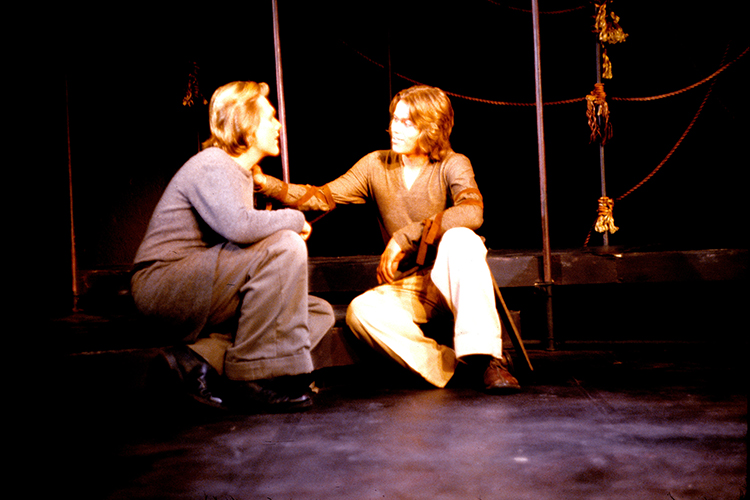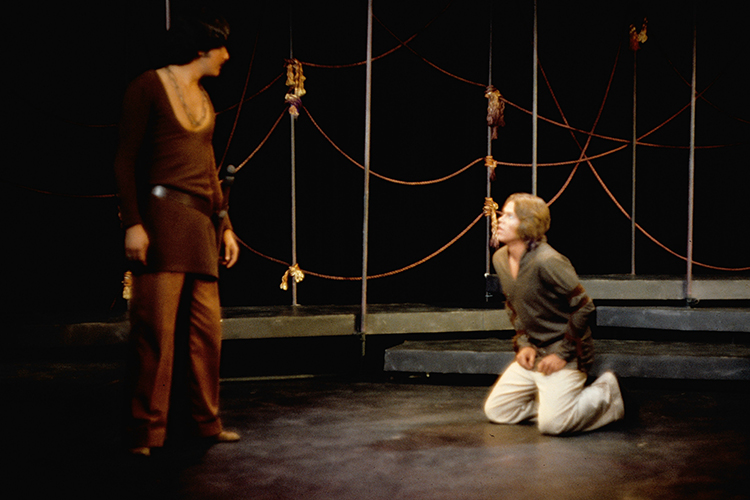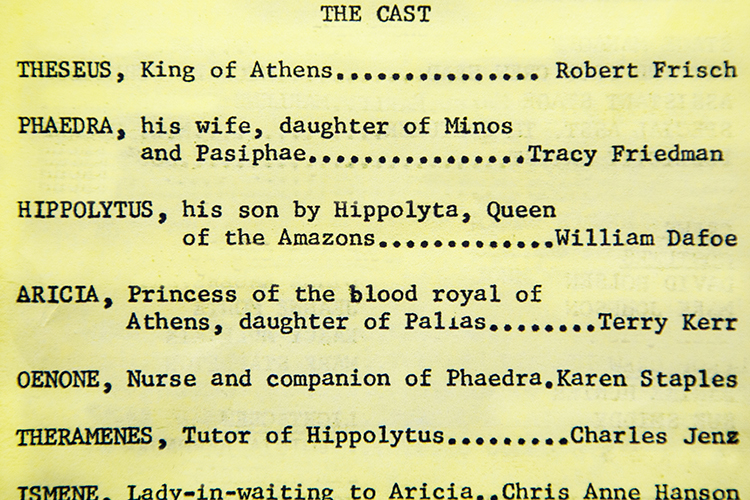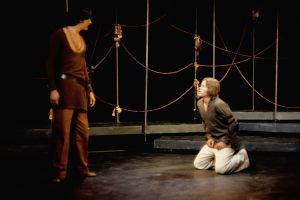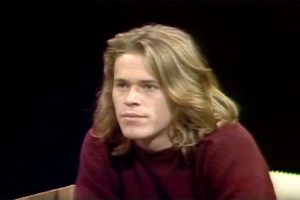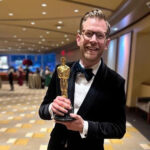Willem Dafoe is an award-winning veteran star of the stage and screen, but 40-some years ago, he was a wet-behind-the-ears UW-Milwaukee student bitten hard by the acting bug.
“I was young and very unsophisticated, but eager to train and perform,” Dafoe said in an email. “I was totally involved and spent most nights on a couch in the theatre because I was always working and studying and didn’t want to go home.”
Even then, his teachers and fellow students saw he could be something special. And now, he’s a strong contender to win his first Academy Award.
Dafoe is likely to land a best supporting actor Oscar nomination Jan. 23 for his work in “The Florida Project.” (Update: He snagged the nomination.) In the film, Dafoe plays a hard-bitten but ultimately tender-hearted manager of a rundown motel in the shadow of Disney World, where he becomes something of a guardian to some of the children living there on the edge of poverty. The film is drawing very strong reviews, many focusing on Dafoe and his work with an almost entirely novice cast.
Dafoe already has received Golden Globe and Screen Actors Guild best supporting actor nominations for “The Florida Project.” Dafoe has been nominated for an Oscar twice previously, for the 1986 film “Platoon” and 2000’s “Shadow of the Vampire.”
But back in 1973, Dafoe was fresh out of high school in Appleton. He came to Milwaukee and crashed on the couch of a friend, Jim Gage.
“I had done community theater with him the previous summer, and he arranged for me to take some classes at UWM,” Dafoe said. “I was very excited by the eclectic, passionate faculty and the production-based teaching.”
Corliss Phillabaum, professor emeritus of theatre at UWM, directed Dafoe in two plays – “Phaedra,” a 17th century French tragedy by Jean Racine, and Eugene O’Neill’s “A Moon for the Misbegotten” – during the fall of 1973 and spring of 1974.
Dafoe was so good, Phillabaum recalled, that a French professor told him that Dafoe’s performance as Hippolytus in “Phaedra” had totally changed his interpretation of that classic play, which the professor thought he knew well. “That was testimony that there was something really special about him,” Phillabaum said of Dafoe.
In “Moon for the Misbegotten,” Dafoe, then listed as William Dafoe, was cast in a small but important role as Mike Hogan. “He was very, very good in a role that only appears in the first 10 minutes of the play,” said Phillabaum. “And then in ‘Phaedra,’ which was a very challenging role for a young actor, he was really quite remarkable.”
Phillabaum, who taught at UWM for 40 years, recalled Dafoe as “a delight to work with and a wonderful team member of a cast.” Both “Moon for the Misbegotten” and “Phaedra” were plays that required very close ensemble work, he recalled, and Dafoe was part of a team of actors “who really worked together and made something out of challenging plays.”
Dafoe developed a singular focus on theater.
“I intended to pursue a liberal arts education, but I dropped all my basic study and just went to theatre classes and got involved in productions at school,” Dafoe said.
Dafoe left UWM after two years to become part of Theatre X, which started as a UWM faculty-student workshop and then became an independent experimental theater company.
Dafoe loved the work Theatre X was doing and the Theatre X company admired his acting, recalled John Schneider, who was an actor, director and playwright with Theatre X at the time. Dafoe became an integral part of the collaborative company.
“He already wanted to be a movie star,” said Schneider, who is now an assistant arts and entertainment editor at the Shepherd Express and remains friends with Dafoe. “He was fearless onstage and, pretty much, in life. He was very sweet, a very kind man ready to help you in any way he could.”
Dafoe left Milwaukee for New York to join experimental theater companies the Performance Group and the Wooster Group. While continuing stage work, he started his film career with “Heaven’s Gate” in 1980, and went on to establish himself as an actor who could tackle a wide variety of roles. His extensive film credits include “To Live and Die in LA,” “Mississippi Burning,” “Born on the Fourth of July,” “The English Patient,” “The Grand Budapest Hotel,” “Spider-Man” and numerous others. He has also done voice roles for such animated films as “Finding Nemo” and its sequel, “Finding Dory.”
He appeared in five films in 2017 and has three others in production, according to imdb.com.
“He’s definitely talented and hardworking, and he’s paid his dues,” said Phillabaum, who reconnected with Dafoe at the 2007 Milwaukee Film Festival, which did mini-retrospective of Dafoe’s work. “By that time, I had seen him in a number of films and knew he was a major talent who brought something special to a wide variety of films.”
Phillabaum had shared some of his memorabilia with the Milwaukee Film committee to give to Dafoe, and the two later chatted at a reception, reminiscing about Dafoe’s days at UWM.
“He had very happy memories of the work,” said Phillabaum. “And the thing he remembered most was the wonderful chocolate chip cookies my wife supplied at cast parties.” (Phillabaum added with a smile that the cookies, which many of the young actors remembered, actually came from a Sentry grocery store.)
Added Phillabaum: “Just from the very young Dafoe that I knew and this brief meeting at a cocktail party, it seemed to me that he had a personality that sort of created good vibes and made the memories happy. He was a really nice guy to work with.”
Dafoe remembers his time at UWM fondly.
“My time at UWM was a very formative and positive experience,” he said.
